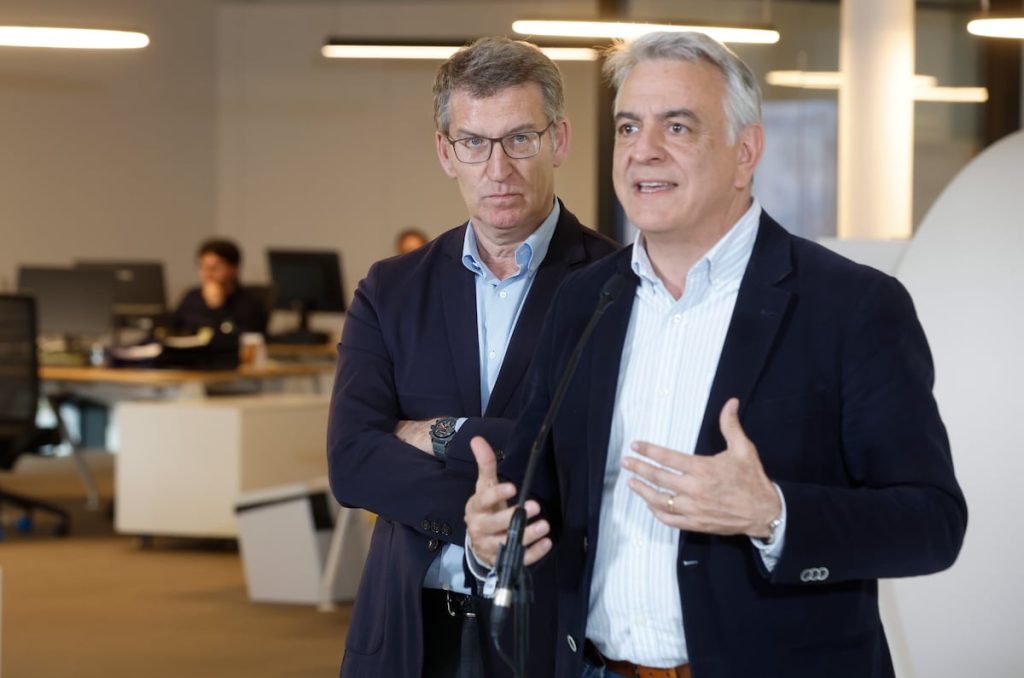Alberto Núñez Feijóo came close to consolidating his friendly turn towards nationalism in the Basque elections. At one point during the vote count, Vox was left out of Parliament, which would have been a boost to the Basque PP’s election campaign, based on a kind of moderate regionalism close to the PNV, focusing criticism only on economic management. However, the far-right managed to win a seat, leading some voices in Madrid to blame the party leadership for running a soft campaign, rather than addressing identity issues like ETA. Feijóo has been under constant scrutiny since failing to become president on June 23. The recent elections in Galicia posed a challenge that could have questioned his leadership if the majority had not been maintained, but Feijóo’s tactic of emphasizing Galician rural issues helped secure his victory, despite controversy around a possible conditional pardon for Carles Puigdemont. Feijóo likely understands that to govern Spain, he should avoid stirring controversy in regions with nationalist demands or among parties in power there, which may explain his pragmatic approach in the Basque Country to court the PNV voters.
The candidate for the Basque PP, Javier de Andrés, followed the lead of other parties by skirting the issue of ETA and focusing on the economy and social services. It wasn’t until Pello Otxandiano showed his reluctance to condemn the terrorist group that the issue became central to the campaign. This highlights the double standard of the PP, who have used criticism of ETA as a rallying cry in Madrid while avoiding the topic in regions like the Basque Country. The decision not to address terrorism by Feijóo’s PP seemed calculated, and some voices in the right-wing circles of Madrid criticized the soft approach after the elections, sparking renewed debate about ETA and government policies. The left also faced criticism, with the PSOE attacking Otxandiano, pushing Bildu back into the progressive block alongside Pedro Sánchez.
The Basque elections raise a fundamental question: the focus on economic management over identity politics and terrorism may reflect a strong desire in Basque society to look towards the future and move beyond the past. The controversy surrounding Otxandiano resonated more in national media than in the Basque region itself, with some criticism even coming from the Madrid right regarding Vox’s focus on immigration rather than ETA. The rise of Bildu is just one sign of a generational shift in the Basque Country, prompting the Basque PP to consider its future direction. The debate over mentioning ETA illustrates the challenges for the PP in regions with nationalist aspirations, as seen in Catalonia where Alejandro Fernández confronts the independence movement, especially after the criticism of the Basque campaign. Feijóo’s low profile at the Sant Jordi festival in Catalonia, where he avoided commenting on Puigdemont’s legal status, suggests a cautious approach to divisive issues.
Navigating politics in Catalonia and the Basque Country poses challenges for the right-wing. Some analysts suggest that bringing Feijóo or Ayuso as supporters for the PP candidate may have been a misstep, as the party had previously positioned itself as a distinct alternative separate from the Moncloa power bloc. The perspectives on politics differ significantly between regions inside and outside the M-30 highway in Spain, indicating a need for adaptable strategies. Only time will tell if Feijóo’s approach represents a temporary shift or a conscious effort to adapt to changing political dynamics within the right-wing.


